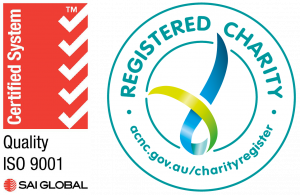The expert view: Sam Biondo looks back
Pictured: Sam Biondo. (Photo: Headpress)
Informed input from people who work in the health sector is a critical element in NWMPHN’s approach to co-design, collaboration, service mapping and commissioning.
Add your title here
This is the text area for this paragraph. To change it, simply click and start typing. Once you've added your content, you can customize its design by using different colors, fonts, font sizes and bullets. Just highlight the words you want to design and choose from the various options in the text editing bar.
This is the text area for this paragraph. To change it, simply click and start typing. After adding your content, you can customize it.
To this end, we benefit from the collective insight of the members of our expert advisory groups, who meet several times each year. The groups cover Aboriginal and Torres Strait Islander health, alcohol and other drugs, older adults, mental health and general practice.
This year, Sam Biondo ended his valuable contributions to NWMPHN’s Alcohol and Other Drugs expert advisory group. His departure coincided with his decision to retire after 16 years at the helm of the Victorian Alcohol and Drug Association.
But before he left, he found time to do a quick interview with us.
“The system as a whole is trauma-informed … ”
Add your title here
This is the text area for this paragraph. To change it, simply click and start typing. Once you've added your content, you can customize its design by using different colors, fonts, font sizes and bullets. Just highlight the words you want to design and choose from the various options in the text editing bar.
This is the text area for this paragraph. To change it, simply click and start typing. After adding your content, you can customize it.
Looking back, what trends do you see in AOD policy and implementation?
The broad trend is to seek to implement pragmatic evidence-based policies that can make a difference, rather than the things that look good. It is a trend but also very much a challenge due to political, social and sometimes economic challenges. Just think about tobacco or alcohol controls and the complexity of dealing with syringe distribution, supervised injecting facilities or harm reduction in general.
Is the sector getting better at improving social and health outcomes for Victorians? In what ways?
The AOD sector addresses client need through a bio-psycho social approach which looks at the holistic needs of our services users, including their mental health needs. The system as a whole is trauma-informed. However, success often lies in the realm of allied service systems such as mental health, housing, and so forth, where we have little control. For success to improve we need better cross sectoral pathways and support which is compatible across disciplines and locations.
What aspects of your AOD work have been most satisfying for you personally?
The daily complex problem-solving, the grind to try and make something work which I know can make a difference. In many ways our successes lie at the boundaries which we need to push against to achieve improvement.
“NWMPHN asks the hard questions … ”
What are the most important reforms that still need to occur, and why?
Managing the public perception and stigma towards the most marginalised, poverty stricken and traumatised individuals in our society. Implementing policies that matter and convincing folk that treatment and counterintuitive policies especially in the AOD sector can and do make a difference.
How do you assess NWMPHN’s role and influence in the sector?
NWMPHN asks the hard questions and listens to its stakeholders. It tries hard to make a difference across its funded programs. It brings humanism back into our work.
A central tenet of NWMPHN’s approach is a commitment to improving health equity. How can this be achieved in the AOD space?
Of course funding works, but speaking out of the things that matter is also very powerful and can make a real difference in this grossly misunderstood area of work.
This video, produced for the National Primary Health Network Commissioning Showcase 2023, explains how we partnered with Harm Reduction Victoria and the Association of Participating Service Users to co-design services with the people who use them. It features NWMPHN Alcohol and Other Drugs Expert Advisory Group members Sione Crawford and Matthew Corbett.
Our STORIES
Keep up to date with the latest news and publications, funding opportunities, careers and upcoming events at NWMPHN.

